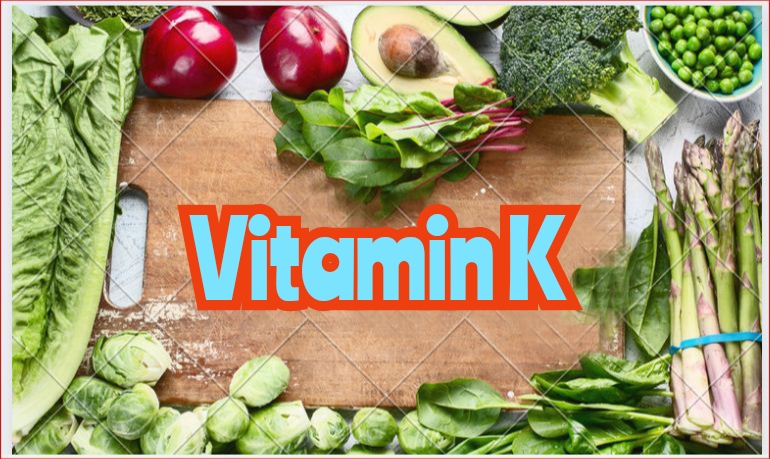Living a healthy life and eating healthy foods are complementary. Health experts recommend adding some nutrients to your daily diet for weight gain, health and nutrition. One such nutritious nutrient is K. Let us Know brief information about Vitamin K.
Vitamin K,” the generic name for a family of compounds with a common chemical structure of 2-methyl-1,4-naphthoquinone

Table of Contents
VitaminK Group
Vitamin K is actually a collection of substances. Vitamin K1 and vitamin K2 appear to be the most important of these molecules. Leafy greens and other vegetables are good sources of vitamin K1. Vitamin K2 is a collection of bacteria-produced chemicals that can be found in meats, cheeses, and eggs.
Vitamin K
- Fat-soluble vitamers that are found in foods and sold as dietary supplements.
- It is required by the human body for post-synthesis alteration of specific proteins that are necessary for blood coagulation and calcium binding in bones and other tissues.
- It is important for blood clotting and preventing excessive bleeding.
- Unlike many other vitamins, is not commonly utilised as a dietary supplement.
Foods that Contain Vitamin K
It can be found in some common home remedies. It’s a relief that everyone gets this nutrient, especially from green vegetables. ” Vitamin K rich foods include-
- Spinach.
- Coriander leaves.
- Cabbage.
- Cauliflower.
- Salgam.
- Fish.
- Eggs.
- Broccoli vegetables.
- Jamukoli.
- Pomegranates and some fruits.
Experts believe that if we include some of these ingredients in our regular diet, we are less likely to have a heart attack.
VitaminK Deficiency
The study found that 50,000 Americans had a lower risk of heart disease than those who ate a diet rich in nutrients. According to the study, those who consumed a large amount of K1 in their diet had a 21 percent lower risk of heart attack, while those who ate a higher K2-based diet had a 17 percent lower risk of heart attack. So it would not be an exaggeration to say that this is one of the most important things in modern life.
While vitamin K deficiencies are uncommon, you may be at higher risk if you.
- Crohn’s disease or active Celiac disease-the disease that affects absorption in the digestive tract, such as
- Drugs that interfere with vitamin K absorption.
- Severely malnourished.
- Drink alcohol heavily.
Read also..
- Average Weight of a baby and growth chart for babies, toddlers, and kids
- Health tips on gastric problem.
- Health tips on Hypertension.
- Food that causes acidity.
- Benefits of eating sago.
- 22 Rules of staying healthy.
- Get rid of Constipation problem.
- Home remedies on Thyroid disease.
- Tips for healthy kidney.
- Health tips on cardamom.
If you liked our article, you can comment on it in the comments box below and also share this post with your friends and relatives.
Please Subscribe so that we will bring you more such articles in the future. Thank you.
Have a good day. God Bless You




